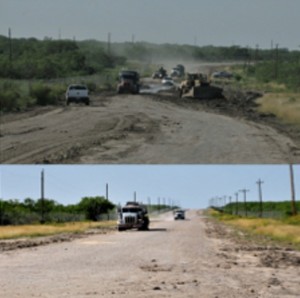The drug war is now affecting parts of the Eagle Ford as pipeline inspectors express concern for their safety.
As energy companies moved into the Eagle Ford, they have cleared brush and build dirt roads in order to make way for pipelines to carry their product.
This development has had the unintended consequence of providing potential pathways for those smuggling drugs and illegal immigrants, and officials now fear that criminals may come into contact with energy company employees, regulators and landowners.
The issue of the drug cartels exploiting the Eagle Ford Shale’s network of private roads has been a concern since 2012.
Related: Drug Smugglers Using Location Roads to Bypass Border Patrol
“The federal government has been ineffective in preventing illegal activity along the border and with the unprecedented amount of oil and gas activity in the Eagle Ford Shale in recent years, Commission inspectors in South Texas have voiced concerns about their safety. It is the Railroad Commission’s duty to protect the health and safety of all Texans – and as Railroad Commissioners, this responsibility extends to ensuring that our staff is protected while doing this important work.”
Porter has implemented policy changes to keep inspectors safe including:
- Ensuring that RRC staff and inspectors who want to carry firearms for self-protection on duty have the opportunity to obtain their concealed handgun license in a timely manner.
- Requiring inspectors in areas of concern to use the “buddy system” to ensure they are not alone in potentially dangerous areas.
- Purchasing cell phone boosters for inspector vehicles in remote areas of South Texas that are close to the border and have limited access to mobile communications.
For more information, go to rrc.state.tx





